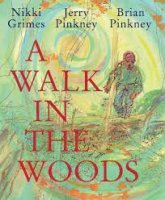"And with the radio blasting
Goes cruising just as fast as she can now
And she'll have fun, fun, fun
'Till her daddy takes the T-Bird away"
-- Brian Wilson & Mike Love, "Fun Fun Fun"
"Asphalt also helped the dead 'live' forever. Ancient Egyptians believed in life after death. But to gain eternal life, a corpse had to be
mummified--that is, embalmed and dried to prevent decay. Asphalt was a key ingredient in turning a corpse into a mummy; the word comes from mumiyyah, Arabic for 'asphalt.' Since Egypt had little asphalt, merchants traveled to the Dead Sea, in what is today Israel, to trade with the local Arabs for it. The King of Syria, hoping to profit from the trade, sent an army to occupy the area. Furious that a foreign 'thief' should control the fate of their dead, the Egyptians sent an army in 312 BC, thus winning history's first war for oil."
As we learn from BLACK GOLD, there are over a quarter-billion registered motor vehicles in America today, one for every 1.1 people. No matter what belated efforts we as a society might someday finally undertake to both radically increase fuel efficiency and develop more convenient mass transit systems -- systems that will really take significant numbers of cars off the road -- those of us alive today will undoubtedly spend the rest of our days having our daily lives inexorably intertwined with fossil fuels. And it sure as heck doesn't feel like we've seen the last of wars for oil.
So how did we get here? Beginning with a geologic- and chemical-related exploration of how -- over millions of years -- coal, oil, and natural gas has come to be, Albert Marrin provides a mind-blowing scientific, economic, sociological, environmental, and geopolitical history of the petroleum-based energy resources that are the core of our modern civilization and the core of our civilization's most intractable problems and conflicts.
"The town buzzed with excitement, and smelled to high heaven, thanks to all that oil. 'The whole place,' a visitor said, 'smelled like a corps of soldiers when they have diarrhea.'"
This book is a gas. We learn that it was because of the eighteenth century need for bright and safe lighting fuel, and because of the rapidly depleting supply of whales for whale oil, and because it was discovered that kerosene could be extracted from petroleum, that smart and ambitious "Colonel" Edwin L. Drake was hired by a business group to drill for oil on Oil Creek in Titusville, Pennsylvania (a stream known for its oil seeps). After a few failed attempts at developing a technology for oil drilling:
"What Drake did next would make him famous as the father of the petroleum industry. His solution became the model for all future oil-well drilling. It popped into his mind suddenly, as if by magic. Drake bought sections of iron pipe; he called them drive pipe, because he would drive them into the ground with a battering ram made of an oak log. As the ower sections went deeper, he would attach a new section at the top and then run the drill string through the pipe. This way the pipe kept the water out while the drill
attacked the rock below.
"On August 28, 1859, the drill broke into reservoir rock near the surface, at a depth of sixty-nine feet. Oil bubbled up, flowing at a rate of twenty-five gallons a day. At first, Drake stored it in wooden washtubs bought from farmers' wives. When these ran out, he bought up all the used whiskey barrels he could find, each holding forty-two gallons. That set the standard. A barrel of oil always has the same amount as an old-time whiskey barrel."
".19"-- old gas station price sign I remember seeing, back in the late sixties, for gas at 19 cents per gallon. After taking us back through earlier days, covering topics like trust busting and discovering Texas's black gold, author Albert Marrin guides us
through an outstanding examination of WWII from the perspective of petroleum. Then he tops that by unraveling a century of Middle Eastern oil and geopolitics. And then he dives into the environmental effects of our search for and use of petroleum. I cannot believe that the author fits everything I just learned, about arguably the most important issues in our world today, in a mere 152 pages plus backmatter.
"Damn this traffic jam
How I hate to be late
It hurts my motor to go so slow
Damn this traffic jam
Time I get home my supper'll be cold
Damn this traffic jam"
-- James Taylor
"The United States has an 'energy intensive' economy and society. The numbers speak for themselves:
* Our country has 5 percent of the world's population but uses 26 percent of its energy.
* As of 2008, Americans used seventeen million barrels of oil each day.
* It takes seven gallons of gasoline per person -- man, woman, and child -- to run the country each day.
* We burn one out of every seven barrels of oil produced in the world on our highways.
* Drivers waste twelve million barrels of oil each year stalled in traffic jams."
Middle Eastern oil-producing countries disliking us. Escalating fuel costs and steadily decreasing supplies. Global warming and massive pollution. Are we all doomed, or what? As Marrin points out, no solution will come easily or cheaply. He concludes the story of oil in our lives with a look at some of the options...and tough choices...we have.
BLACK GOLD is a truly significant work of youth literature.
192 pages
ISBN: 978-0375866739
Recommended by: Richie Partington, Librarian, California, USA






